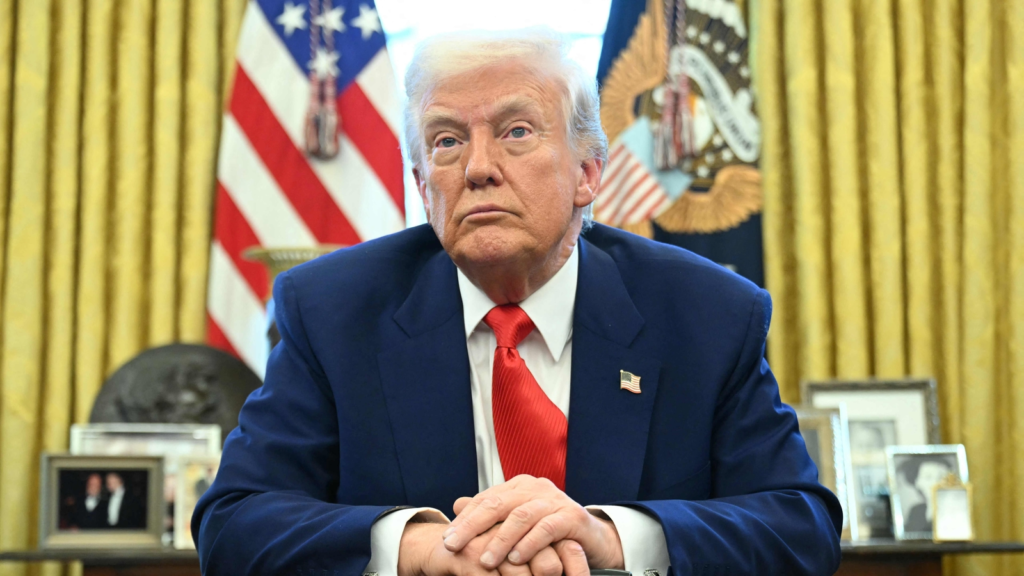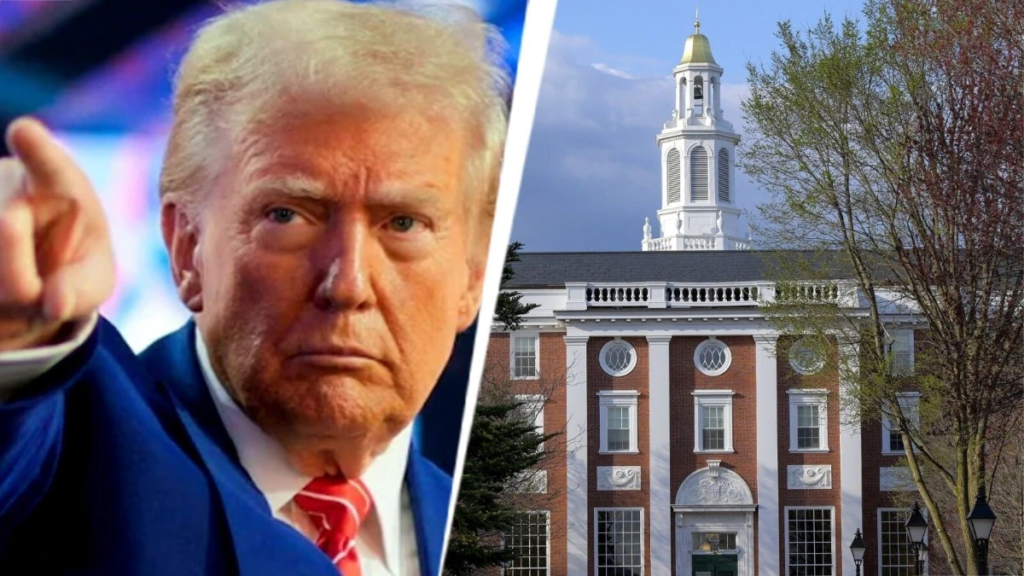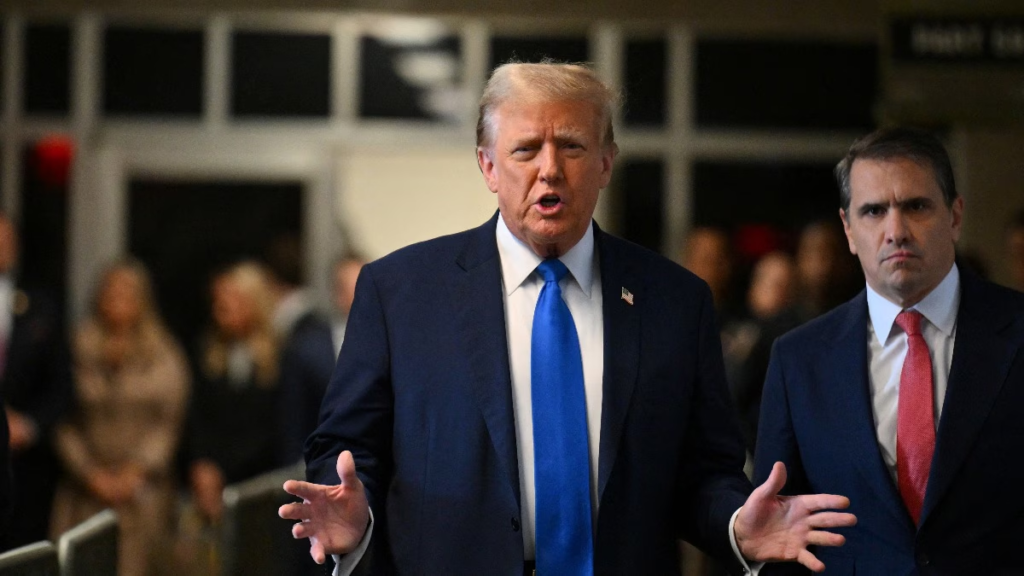In a significant legal victory for international students, a federal judge in California has blocked the Trump administration’s efforts to terminate the legal status of thousands of foreign students studying at U.S. colleges and universities. The decision, issued on May 23, 2025, by U.S. District Judge Jeffrey S. White of the Northern District of California, prevents the government from arresting, detaining, or deporting students based solely on their immigration status while a broader legal challenge plays out in court. This ruling has far-reaching implications for the 1.1 million international students enrolled in U.S. institutions during the 2023-2024 academic year, offering them temporary relief from the threat of abrupt visa revocations.

Background of the Controversy
The Trump administration’s immigration policies have been a focal point of debate since the start of its second term. In early April 2025, the Department of Homeland Security (DHS) began revoking the Student and Exchange Visitor Information System (SEVIS) records of thousands of international students. SEVIS is a critical database used by colleges and universities to verify a student’s legal status to study in the U.S. The administration’s actions targeted students it claimed had participated in pro-Palestinian campus protests, engaged in antisemitic behavior, or had minor legal encounters, such as traffic violations or dismissed charges. According to the American Immigration Lawyers Association, at least 4,700 students had their SEVIS records terminated since January 20, 2025, often with little notice or explanation.
The policy sparked immediate backlash from students, universities, and advocacy groups, who argued that the revocations were arbitrary and lacked due process. Many students faced the risk of deportation or were forced to leave the U.S. voluntarily to avoid detention. The move was part of a broader crackdown on immigration, which included efforts to limit political dissent on college campuses and pressure universities to align with the administration’s priorities. Critics, including legal experts, pointed out that the revocations appeared to target students based on their political activism, particularly those who expressed support for Palestinian rights, rather than any clear evidence of criminal activity.
The Legal Battle
The legal challenge that led to Judge White’s ruling was brought by a group of international students whose SEVIS records were terminated. The plaintiffs argued that the Trump administration’s actions violated federal rule-making procedures under the Administrative Procedure Act, calling them “arbitrary and capricious.” Judge White, appointed by former President George W. Bush, agreed, stating that the government “likely exceeded their authority” and caused significant harm to students’ lives. In his 21-page decision, he noted that the administration’s actions “wreaked havoc” not only on the plaintiffs but also on countless other international students across the country.
White’s preliminary injunction prohibits the federal government from arresting, detaining, or deporting students based on their immigration status until the case is resolved. However, students can still face legal consequences for violent crimes carrying a sentence of more than one year. The judge emphasized that the government’s reinstatement of some SEVIS records was insufficient, as the erroneous terminations remained on students’ records, potentially affecting their ability to obtain new visas or change their immigration status in the future. “It is unclear how this game of whack-a-mole will end unless Defendants are enjoined from skirting their own mandatory regulations,” White wrote, criticizing the administration’s pattern of changing policies to avoid judicial scrutiny.

The ruling came just hours after the Trump administration escalated its campaign by revoking Harvard University’s certification under the Student and Exchange Visitor Program (SEVP), effectively barring the university from enrolling international students. Harvard, which hosts approximately 6,800 international students—about 27% of its student body—filed a separate lawsuit on May 23, 2025, in federal court in Boston. The university argued that the move was retaliatory, aimed at punishing Harvard for resisting the administration’s demands to alter its governance, admissions, and curriculum. A second federal judge, Allison D. Burroughs, issued a temporary restraining order to block the revocation, ensuring that Harvard’s international students could remain enrolled for now. The New York Times NBC News
Impact on International Students and Universities
The implications of these rulings extend beyond the courtroom, affecting the lives of thousands of students and the financial stability of U.S. universities. International students contribute significantly to the U.S. economy, adding nearly $44 billion annually through tuition and other expenses, as they are typically ineligible for federal financial aid and often pay full tuition. For many institutions, these students are a critical source of revenue, particularly as federal funding for research and other programs faces cuts under the Trump administration.
At Harvard, the administration’s actions threw academic programs, research laboratories, and clinics into disarray, as international students make up a substantial portion of the university’s community. Students like Leo Gerden, a Swedish undergraduate at Harvard, expressed relief at the court’s decision but highlighted the ongoing uncertainty. “There is no single decision by Trump or by a judge that is going to put an end to this tyranny,” Gerden told Reuters, reflecting the anxiety felt by many international students who remain in limbo. Reuters
For students like Cormac Savage, an Irish student set to graduate from Harvard, the threat of visa revocation has disrupted plans for post-graduation employment and residency in the U.S. Others, like Rohan Battula, a junior from the UK, opted to stay on campus during breaks to avoid complications with re-entering the country. The fear of deportation has led some students to avoid legal action, worried that challenging the government could make them targets for further scrutiny.
The Broader Context
The Trump administration’s policies have drawn comparisons to post-9/11 surveillance of Muslim students and scholars, with critics arguing that the current crackdown is politically motivated. Secretary of State Marco Rubio has justified the revocations by citing national security and the need to vet students more thoroughly, particularly through expanded social media screening. On May 28, 2025, Rubio ordered a temporary halt to new student visa interviews to implement these changes, a move that could further restrict international student enrollment. This decision has raised concerns about its impact on university budgets, as a decline in international students could exacerbate financial challenges caused by reduced federal funding.
The administration’s feud with Harvard is part of a larger effort to pressure elite institutions to curb pro-Palestinian activism and align with its political agenda. In April 2025, the White House froze $2.2 billion in federal grants to Harvard, prompting an earlier lawsuit from the university. President Trump has also threatened to strip Harvard of its tax-exempt status and has suggested similar measures against other universities. These actions have sparked protests across campuses, with students and faculty rallying in support of international students and academic freedom.

What’s Next?
While Judge White’s nationwide injunction and Judge Burroughs’ restraining order provide temporary relief, the legal battles are far from over. A hearing to determine whether the Harvard restraining order should be extended is scheduled for May 29, 2025, in Boston. The Trump administration is expected to appeal both rulings, with DHS Assistant Secretary Tricia McLaughlin asserting that the decisions “delay justice” and undermine the president’s authority over immigration policy. “It is a privilege, not a right, for universities to enroll foreign students,” McLaughlin told Newsweek, signaling the administration’s intent to continue its hardline stance.
For now, international students can breathe a sigh of relief, but the uncertainty lingers. Universities, advocacy groups, and students are bracing for a prolonged fight, with the outcome likely to shape the future of international education in the U.S. As the debate continues, the rulings underscore the judiciary’s role in checking executive actions, particularly when they threaten the rights and livelihoods of thousands. For international students, the stakes are personal—pursuing their education, contributing to their communities, and navigating an increasingly complex immigration landscape in a country they chose for its promise of opportunity.
Read More :- Social Media Platforms Test New Ad Formats, Prioritizing Short-Form Video Content in the USA






